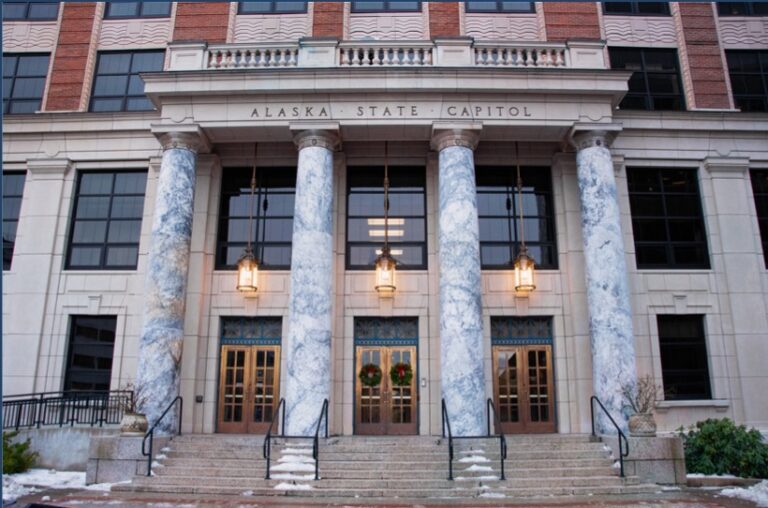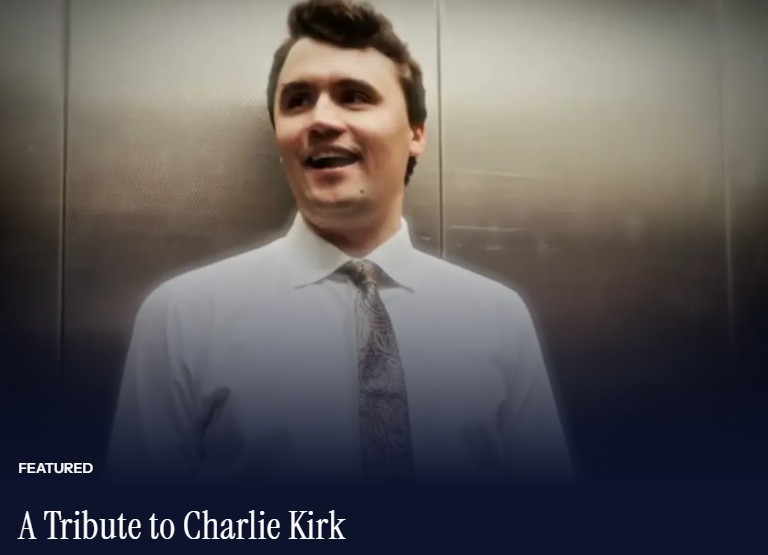by WYATT YOUNG NELSON
I was extremely saddened when I heard that Charlie Kirk had been assassinated. He, like I, feel we have to stand up for what we believe. Sadly, Charlie lost his life doing just that. As a young man from a political family, I have been involved in political efforts most of my adult life. I especially admired Charlie Kirk and his devotion to what he believed. He didn’t just talk about his beliefs; he stood up for them.
I was born and raised in Anchorage, Alaska, and I’m a proud volunteer with Repeal Now AK, a nonpartisan organization made up of Alaskans from all political backgrounds who are united in a common cause: to oppose ranked-choice voting (RCV) and restore traditional voting in our state.
As part of this grassroots movement, I’ve been collecting signatures from registered voters to place a repeal measure on the 2026 ballot. While working on this campaign, I, and other volunteers have experienced harassment, intimidation, and even physical assault from opponents of the repeal effort—just for exercising our right to collect signatures and advocate for change. It is disgraceful that anyone would respond to peaceful civic engagement with threats and violence. I condemn these acts in the strongest terms.
An example of what damage rank choice voting can do is the city of Minneapolis. They adopted ranked-choice voting in 2009 and first used it in their 2013 municipal elections. That year, there were 35 candidates for mayor on the ballot. The election required 33 rounds of vote counting and redistribution, which took weeks before a winner—Betsy Hodges—was declared. Even then, she was elected without receiving a majority of the vote.
Many voters were confused by the complex system. Ballots were discarded due to errors, and others were “exhausted”—meaning votes were thrown out after several rounds because no remaining candidates were ranked. Voters found themselves forced to rank people they didn’t know, support, or agree with politically. Since then, Minneapolis has consistently had some of the lowest voter turnout rates in its municipal elections.
We’ve seen similar problems here in Alaska since adopting RCV: voter confusion, high costs, and a general sense of frustration. This experiment has not worked. It’s expensive—costing millions of dollars—and with our state already facing financial strain, continuing this system risks further economic damage.
We are simply citizens standing up for a fair, understandable, and affordable voting system, just like Charlie Kirk. We ask opponents to listen, consider the consequences, and do what’s right for the people of Alaska.
Wyatt Young Nelson was born in Anchorage but lived in Nome until moving back to Anchorage where he graduated from Bartlett High School and then attended the ACE/ACT program. He was named after the famous Wyatt Earp and his middle name Young is from his grandfather the late Congressman Don Young. He has been involved in both efforts to repeal ranked-choice voting.








